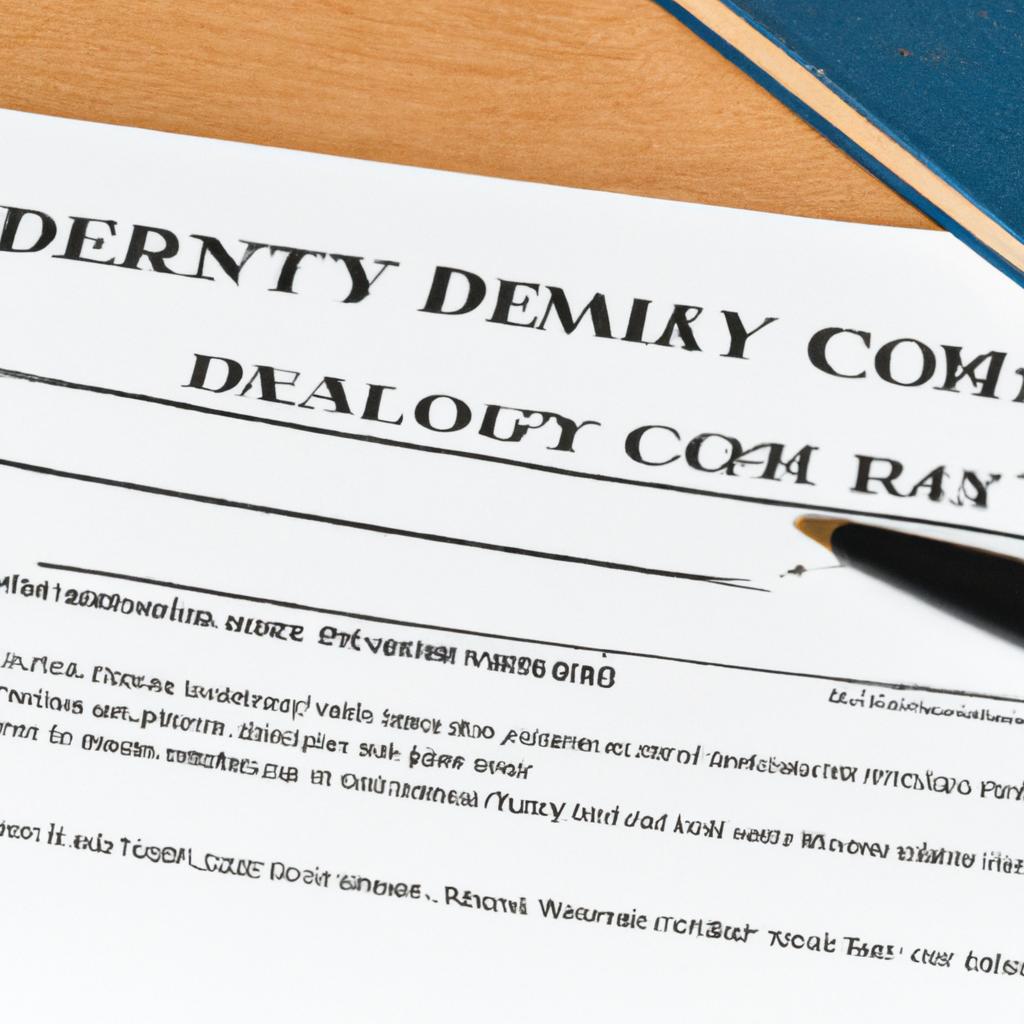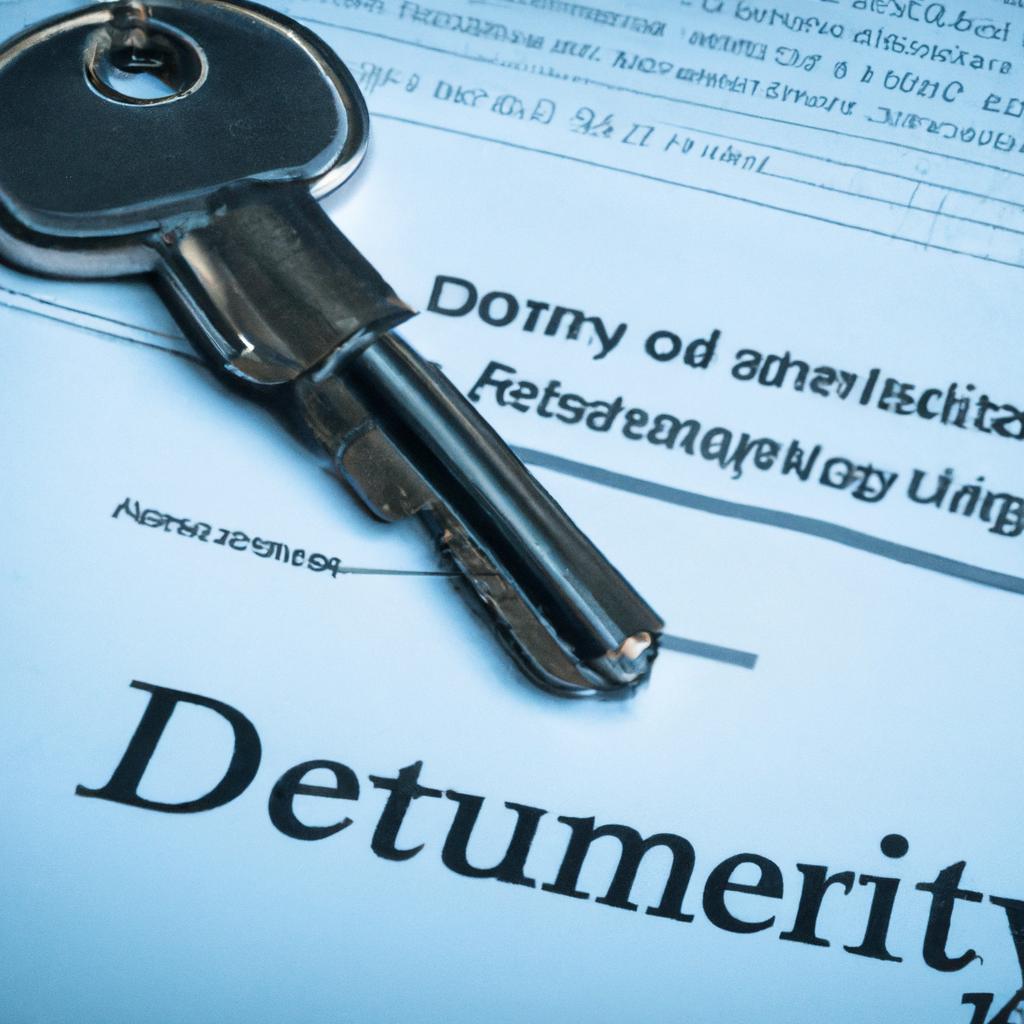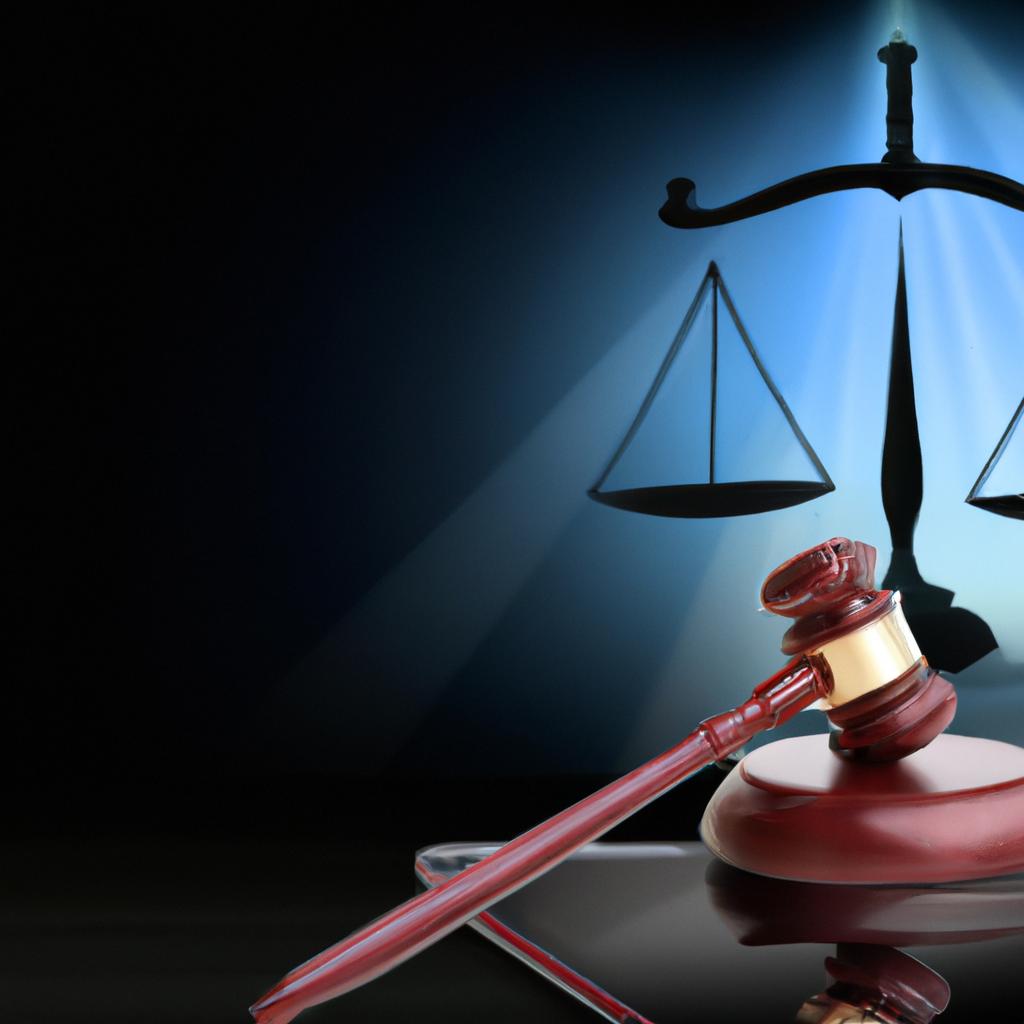In the intricate realm of real estate transactions, the importance of safeguarding one’s property rights through a meticulously drafted copy of a deed cannot be overstated. As seasoned legal professionals at Morgan Legal Group, situated in the heart of New York City, we understand the gravity of protecting our clients’ interests when it comes to their most valuable asset – their home. Join us as we delve into the nuanced world of deed copies and the critical role they play in securing and validating property ownership.
Understanding the Importance of Obtaining a Copy of Deed for Your House
When it comes to homeownership, understanding the importance of obtaining a copy of the deed for your house is crucial. A deed is a legal document that proves ownership of a property. It contains important information such as the names of the property owners, the legal description of the property, and any restrictions or easements that may apply to the property. Having a copy of the deed ensures that you have proof of ownership and can protect your property rights.
By obtaining a copy of the deed for your house, you can also ensure that the information on the deed is accurate and up to date. This can help prevent any potential issues or disputes in the future. Additionally, having a copy of the deed is essential for estate planning purposes, as it can help streamline the process of transferring ownership of the property to your heirs. At Morgan Legal Group, we understand the importance of having a copy of your deed and can assist you with any questions or concerns you may have regarding your property ownership.

Detailed Process of Requesting a Copy of Deed from County Records Office
When requesting a copy of a deed from the County Records Office, there are several steps that must be followed to ensure that the process runs smoothly. The first step is to visit the County Records Office in person or online to request a copy of the deed. Once there, you will need to provide the necessary information, such as the property address, the names of the current and previous owners, and the date of the deed.
After providing the required information, you will need to pay a fee to obtain a copy of the deed. The fee amount may vary depending on the county and the method of request. Once the fee has been paid, the County Records Office will process your request and provide you with a copy of the deed. It is important to keep this copy in a safe place, as it is a crucial document that proves ownership of the property.

Key Information to Verify on the Copy of Deed for Accuracy and Legitimacy
When verifying the accuracy and legitimacy of a copy of a deed for a house, there are key pieces of information that must be carefully examined. One crucial element to confirm is the property description, which should include details such as the address, lot number, and boundaries. It is important to ensure that this information matches the physical location of the property and is consistent with other property records.
Additionally, it is essential to verify the names of the current owners as well as any previous owners listed on the deed. Confirming that the individuals named are indeed the rightful owners of the property is vital to establishing its legitimacy. Another critical detail to check is the signature of the grantor, as well as the date the deed was executed. Making sure that all signatures are present and valid, and that the dates align with other relevant documents, is key to verifying the authenticity of the deed.

Recommendations for Safely Storing and Maintaining Your Copy of Deed
When it comes to safeguarding one of your most valuable possessions, your home, it is essential to ensure that your copy of deed is stored and maintained securely. Here are some recommendations to help you protect this crucial document:
First and foremost, store your copy of deed in a safe and secure location, such as a fireproof safe or a safety deposit box at a trusted financial institution. Make sure to keep it in a place where it is easily accessible to you but out of reach from potential thieves or natural disasters. Additionally, consider making digital copies of the deed and storing them on a secure cloud storage service for added protection. Lastly, periodically review and update your copy of deed to ensure that it reflects any changes or updates to your property ownership status.
Q&A
Q: What is a copy of a deed of a house?
A: A copy of a deed of a house is a legal document that proves ownership of a property.
Q: Why is it important to have a copy of a deed of a house?
A: Having a copy of a deed of a house is important because it serves as proof of ownership and can be used in legal transactions involving the property.
Q: How can I obtain a copy of a deed of my house?
A: You can obtain a copy of a deed of your house by visiting the county recorder’s office where the property is located or by requesting a copy online through the local government’s website.
Q: Can I use a copy of a deed of a house as collateral for a loan?
A: Yes, a copy of a deed of a house can be used as collateral for a loan because it demonstrates ownership of the property.
Q: What should I do if I lose the copy of a deed of my house?
A: If you lose the copy of a deed of your house, you can request a new copy from the county recorder’s office or through the local government’s website. It is important to keep this document in a safe place to avoid losing it in the future.
Closing Remarks
In conclusion, having a copy of the deed to your house is essential for protecting your ownership rights and ensuring peace of mind. By following the necessary steps to obtain and safeguard this important document, you can rest easy knowing that you have a legal record of your property ownership. Remember, a copy of the deed is not just a piece of paper, but a symbol of security and stability for your home. So, take the time to secure your copy and keep it safe for years to come. Thank you for reading!
 Understanding the Copy of Deed of House: A Comprehensive Guide
Understanding the Copy of Deed of House: A Comprehensive Guide
You’ve just purchased your dream home and after months of anticipation and paperwork, you finally hold the keys in your hand. But as a new homeowner, you may come across a term that you may have not heard before – the copy of deed of house. While it may sound like some technical jargon, it is an essential document that you should be familiar with as a homeowner. In this article, we will dive into the world of deeds, specifically the copy of deed of house, and explain everything you need to know about it.
What is a Deed?
Before we delve into the specifics of the copy of deed of house, let’s first understand what a deed is. A deed is a legal document that serves as evidence of ownership or title to a property. It contains important information such as the names of the parties involved, a description of the property, and the terms and conditions of the sale. A deed is signed by both parties and notarized to make it legally binding.
What is a Copy of Deed of House?
A copy of deed of house is simply a duplicate copy of the original deed that is provided to the homeowner after the sale of the property. It is a crucial document that serves as proof of ownership and should be kept in a safe place.
Why Do You Need a Copy of Deed of House?
1. Proof of Ownership
The most important reason to have a copy of deed of house is that it serves as proof of ownership. In case of any disputes or legal matters, you can present this document as evidence that you are the rightful owner of the property.
2. Transfer of Ownership
In the future, if you decide to sell your house, you will need a copy of deed of house to transfer the ownership to the new buyer. It is an essential document that the new buyer will require to complete the sale and transfer of ownership.
3. Refinancing Purposes
If you plan to refinance your home or take out a home equity loan, the lender may require a copy of deed of house as part of the application process. This will help to verify the ownership of the property and ensure there are no legal issues.
4. Tax Purposes
A copy of deed of house also comes in handy when filing your taxes. It contains important information such as the property’s assessed value and tax rate, which are necessary for tax calculations.
How to Obtain a Copy of Deed of House?
If you have misplaced or lost your copy of deed of house, don’t panic. You can easily obtain a copy from your local county recorder’s office where the property is located. Some counties may have this information available online, while others may require you to visit in person.
To obtain a copy, you will need the property’s address and the names of the previous and current owners. Once the request is made, the county recorder’s office will search its records and provide you with a copy of deed of house for a small fee.
In some cases, the original lender or title company may also have a copy of your deed. If you have a mortgage on your property, you can reach out to your lender and inquire if they have a copy of the deed on file.
Tips for Keeping Your Copy of Deed of House Safe
Now that you understand the importance of a copy of deed of house, it is essential to keep it safe and secure. Here are some tips to help you do so:
1. Make Copies: It is always recommended to make copies of important documents, including your copy of deed of house. Keep one copy in a safe deposit box and another in a secure file at home.
2. Store Digitally: In addition to physical copies, it is advisable to store a digital copy of your deed in a secure cloud storage platform. This will ensure that you have access to it from anywhere, in case the physical copies are lost or damaged.
3. Inform Family Members: Make sure to inform family members or trusted individuals where your original copy of deed of house is stored in case of an emergency.
4. Keep it Up to Date: If there are any changes in the ownership or terms and conditions of your property, make sure to update your copy of deed of house accordingly.
Conclusion
In conclusion, a copy of deed of house is an essential document that serves as proof of ownership and can come in handy for various legal and financial purposes. As a homeowner, it is crucial to keep this document safe and up to date. In case of any doubts or concerns, consult with a legal professional for guidance. Congratulations on being a homeowner and we hope this guide has helped you understand the importance of a copy of deed of house.

